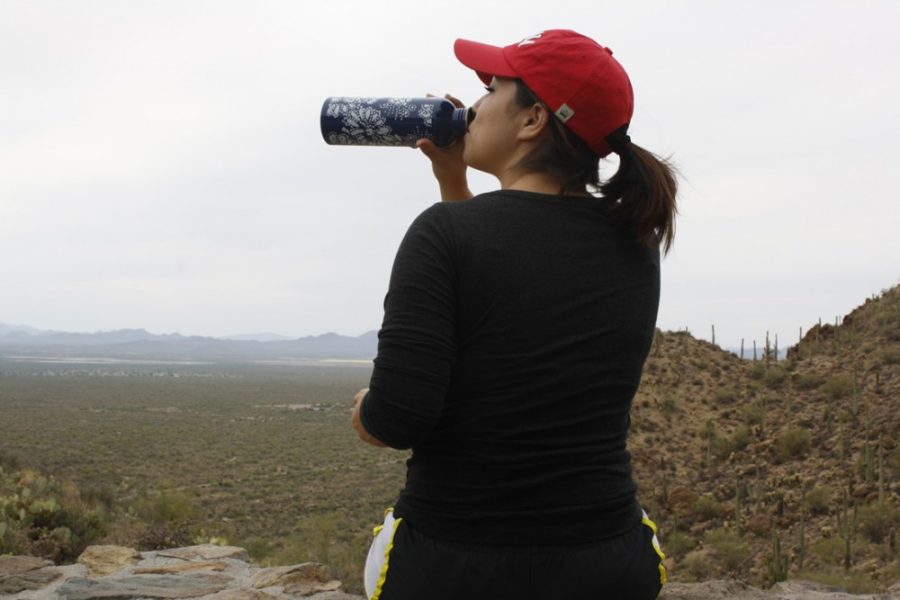Summer officially starts June 21, but summer temperatures have already arrived.
The first 100-degree day in Tucson this year was May 30, and we can expect many more triple degree days by the time summer ends. The risk for heat-related illness increases significantly with the onset of higher temperatures.
According to the Arizona Department of Health Services, close to 2,000 people in Arizona end up in the emergency room every year for heat-related illnesses. From 2000-2012, over 1,500 people in Arizona died from heat-related illnesses.
Heat-related illnesses include sunburn, heat rash, heat cramps, heat exhaustion, heat stroke and even death.
According to a May 29 press release from the Pima County Health Department, if June temperatures resemble the last couple years, “about 80 Arizonans will visit an emergency department for heat-related illness and at least 15 of them will be hospitalized for heat stroke.”
Avoid a trip to the emergency room and prevent heat-related illnesses by following these simple tips.
1. Choose adventure time wisely
The best advice to avoid heat-related illnesses is to use common sense. A hike at 2 p.m. during the summer probably is not the best idea, according to Dr. Michele Manos of the Pima County Health Department. “A summer afternoon is no time for a hike in the desert,” Manos said. With the right forethought and preventative measures, summertime Tucsonans will be much more successful in avoiding heat-related illnesses.
2. Hydrate, Hydrate, Hydrate
“Getting dehydrated is very easy this time of year, as it’s usually quite dry,” Manos said. It is important to remain hydrated and make sure to get enough fluids, regardless of whether physical exertion will occur. A common response to the age old question, “how much water should I drink in a day,” is approximately eight glasses per day. Unfortunately this is simply a rough guideline.
The answer is: really, it depends. “If you’re outside in the afternoon you should be drinking [water] almost consistently,” said Dr. Samuel Keim, head of the UA’s Department of Emergency Medicine. But even with the body fully hydrated, Keim added, “no amount of water will prevent you from getting heat-related illness under sustained periods of direct sun exposure.” Avoid staying in the sun for long periods of time in order to remain safe from heat-related illness.
3. Stay inside
This may seem obvious, but the most effective way to avoid the heat is to stay indoors and enjoy the air conditioning.
“My favorite way to cool off in the summer is to binge watch ‘Parks and Recreation’ on Netflix for the fifth time,” said sociology freshman Brian Flynn.
While many students would agree that Netflix is a great solution to staying out of the sun, there are others who prefer a more active way to escape the heat. “[I] prefer to work out indoors because you have an air-conditioned building, a treadmill and a TV to keep you occupied,” said pre-business freshman Ben White.
If physical exercise is an appealing activity, there are plenty of alternative fitness options available at the Student Recreation Center this summer.
4. Dodge the heat
Take the opportunity to enjoy the great outdoors before or after the sun reaches a severe degree. If being cooped up inside all day is unappealing, and that daily, five mile run just has to be made, evading the heat is going to be the best option.









